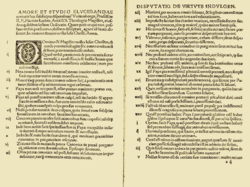You can help expand this article with text translated from the corresponding article in German. (November 2017)Click [show] for important translation instructions.
|
| Part of a series on the |
| Reformation |
|---|
 |
| Protestantism |
This is an alphabetical list of Protestant Reformers.